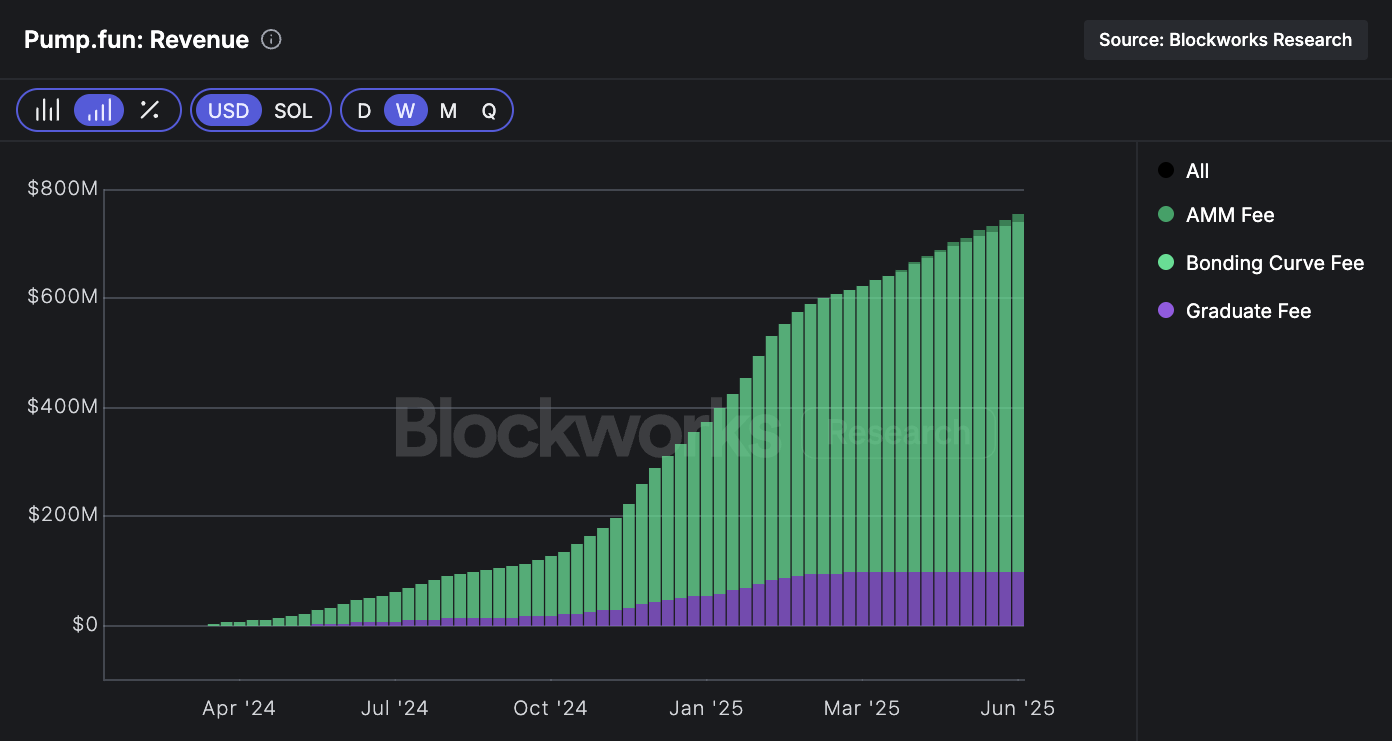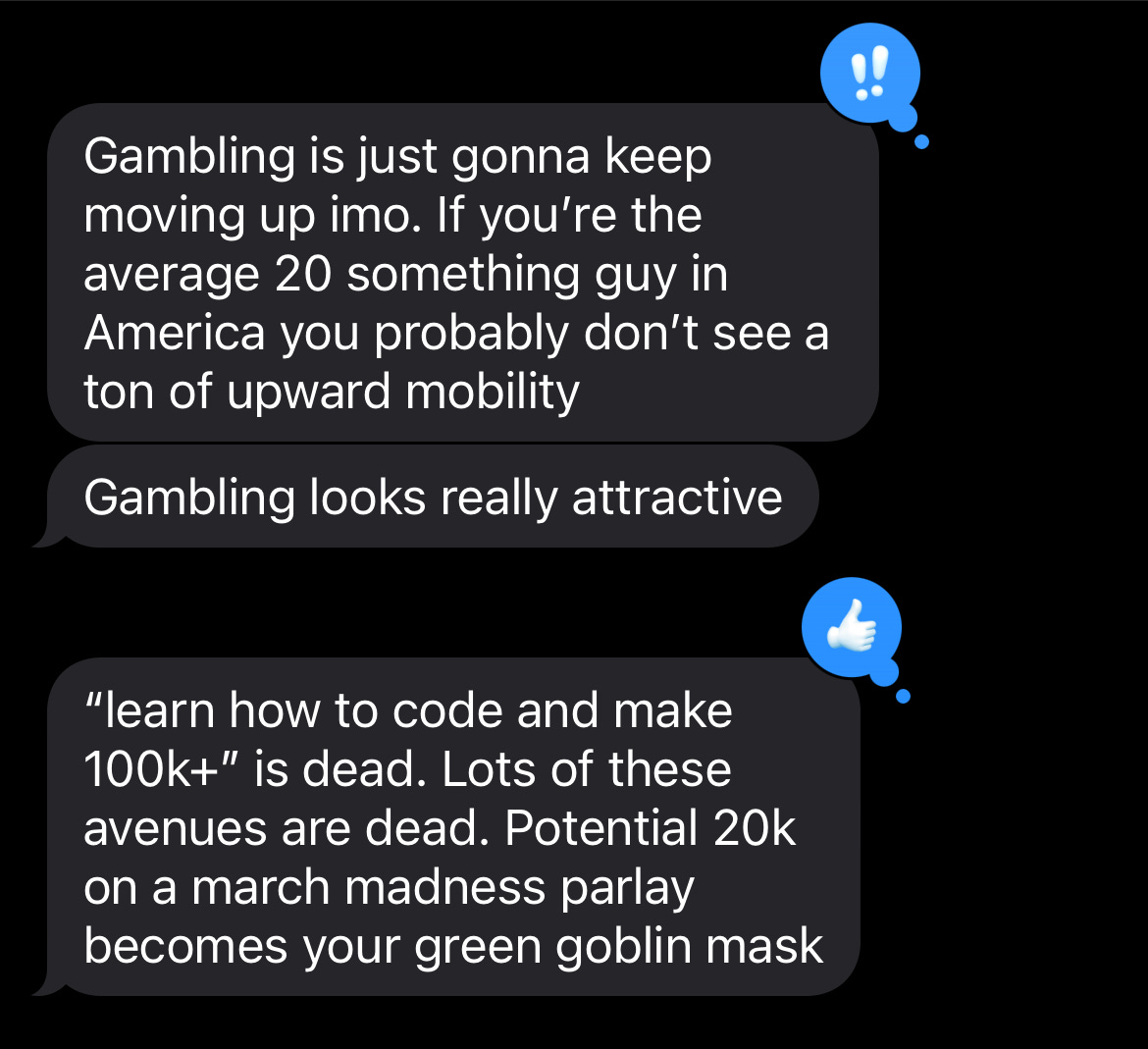015. on socialism & speculation
Mamdani, financial nihilism, and how American youth is trying to find their "way out"
Two things that I’ve seen the elites and older generations consistently and dramatically misunderstand in recent years is the rapid growth of socialism and speculation in America.
Socialism
Young Americans, Gen Z especially, are increasingly embracing socialist candidates and policies — AOC, Bernie Sanders, Zohran Mamdani
Social media’s embrace of anti-capitalist content — see TikTok's "late stage capitalism" trend, Twitter's "eat the rich" discourse, public support for Luigi Mangione
Speculation
Younger generations are increasingly bringing casino-like behavior to traditional financial markets and industries (r/wallstreetbets, DraftKings, Robinhood’s 0DTE options)
Crypto has found phenomenal product market fit in creating and supporting highly speculative consumer applications – memecoins, perps, prediction markets
New Game, New Rules, New Tools
On the heels of Zohran Mamdani’s dramatic upset victory in New York City’s Democratic Mayoral Primary, David Friedberg gave a phenomenal breakdown on socialism’s growth in America, on the latest episode of All In — it’s a must watch.
Friedberg suggests America is in the early stages of a sweeping move towards socialism, driven by young adults that are saddled with debt, insufficiently prepared for the modern workforce, and no clear path towards financial freedom. But a step back to consider how radically consumer finance and investing behaviors have shifted in recent years and you’ll find there’s another consequence to younger generations feeling like they’re falling behind:
Young Americans’ societal disillusionment is also one of the largest drivers of our growing obsession with speculating.
There are several other things we might attribute to the growing universe of speculative apps and behaviors — our growing addiction to dopamine hits, the blurring of entertainment + finance, and more — but that’s a discussion for another post.Financial nihilism is at an all-time high among the younger generations. There’s a 26-year old man somewhere in the East Village, with $65k in student loans from his time at Brown University. He’s earning $110k a year but financed his iPhone 16 using BNPL and allocates at least $400 a month towards DraftKings bets, memecoins, zero-day expiry options on Robinhood, or trading [insert token] with 20x leverage. He has no idea what a P/E ratio is but he owns $5k of the most mentioned biotech penny stock on reddit.
There are hundreds of thousands more young adults just like him, and the number is growing much faster than trading luck can life a handful of young degenerates out of their debt cycle.
In a February text conversation with one of my friends in crypto, he suggested that a class of young adults sees memecoins as the most viable way out of a dangerous, debt-fueled spiral that will leave them permanently behind.
Mamdani's victory and memecoin mania both represent the same generational message: the existing system is either rigged or not working for them, so they're trying out different ones.” When the traditional path to prosperity is broken, the youth will either try to fix the system (socialism) or try to beat it with high-risk bets (speculation).
Both movements will keep growing until the underlying economics change — you can't solve $60k in student debt and unaffordable housing with gentle nudges toward index funds and incremental policy reforms.
The elites who dismiss both trends as irrational are missing the forest for the trees. These aren't just cultural narratives or generational quirks—they're economic adaptations. And they'll only accelerate until young Americans see a credible path to financial security that doesn't require either a political revolution or a lottery ticket.






Really fascinating take on gambling & socialism as a means of escape and mobility. I agree that people vote with their wallet, but I also think that while Mamdani won over the older generations through economic policy (promising a more affordable New York which is much needed), Gen Z rallies for him even more so because he offers hope, trust, and relatability — things we haven’t seen from politicians in a long time. It’s not just about $. It’s the social issues. As a Gen Z, we feel bankrupted — yes economically, but mainly morally — by those in power. Young dems have woken up to the fact that legacy dems aren’t all that different from republicans. They don’t represent our values and Mamdani does.